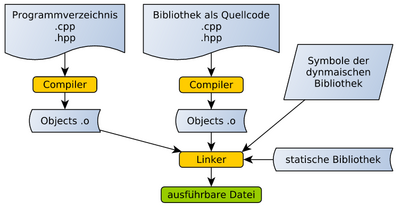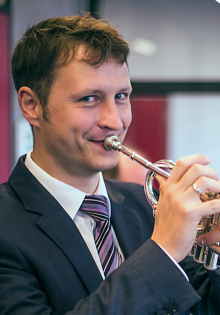Project applied programming
Brief description

The aim is to programme a sequencer for a virtual drum kit. The individual components of the drum kit (drums and cymbals) are available as audio files (WAV files). They must be mixed together appropriately using a text file.
Lecture contents
The practical course in applied programming provides an introduction to the following topics:
- Version management systems
- Platform-independent development and creation of software
- debugging
The Sequnezer consists of the following blocks which are implemented independently after a theoretical explanation:
- Reading and saving WAV files
- Process text files line by line
- Normalise audio
Learning outcomes & professional competences
After attending the course, students will be able to
- use a version management system,
- create platform- and compiler-independent build environments with CMake,
- use GNU GCC Flag in a meaningful way,
- find programming errors in C/C++ projects using static source code analysis,
- find programming errors across languages using dynamic machine code analysis,
- perform debugging with GDB (breakpoints),
- read and save WAV files,
- process text files.
Students will be able to
- Debug programme code,
- carry out software projects with DVCS,
- gain experience in programming (C++).
Methodical realisation
- Lectures as slide presentations
- Exercises and demonstrations on the computer
- practical exercises with Git, CMake, GNU G++, KDevelop in which students independently programme a sequencer
Classification
- Course for Bachelor students
- ECTS: 2
- Language: German
- Semester: Summer and winter semester
You are interested in:

